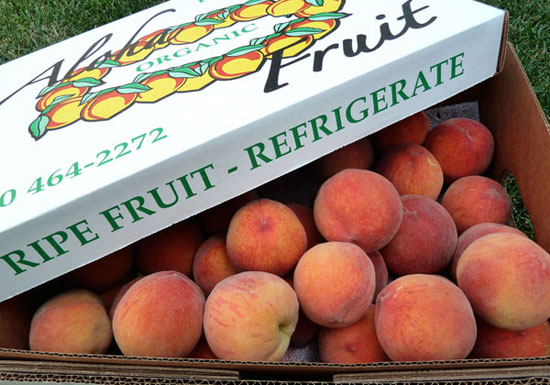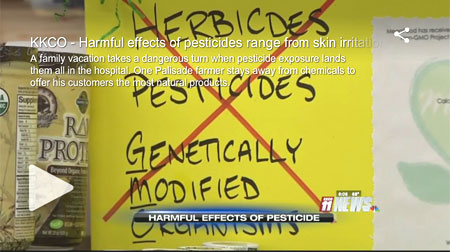KREX News Channel 5
October 28, 2014
By Angel Russell
PALISADE, Colo. – The Colorado Mandatory Labeling of Genetically Modified Organisms, Proposition 105, will be on your statewide ballots this year. If passed, the measure would require that any “prepackaged, processed food or raw agricultural commodity that has been produced using genetic modification” will include the label “Produced with Genetic Engineering.”
 The Grand Junction Chamber of Commerce opposes the proposition, particularly for what they see could be a potential negative impact on the agricultural economy.
The Grand Junction Chamber of Commerce opposes the proposition, particularly for what they see could be a potential negative impact on the agricultural economy.
“It’s not as simple as the proponents say, ‘Oh, just slap a label on your product.’ It’s not that simple,” said Diane Schwenke, Chamber of Commerce.
The Chamber states it has the potential of being costly to local producers to comply with the labeling requirements. It also states that the G.M.O. label itself could potentially cause some fear within consumers that they don’t even buy our products and instead buy from another state.
One local farmer in Palisade will be voting yes on the proposition.
“In my reading of the bill, I don’t really see where the cost will go up that much, if at all, for 90% of us, at least in the Valley. I think the cost will go up for somebody like Monsanto or the big ag producers, but I think for us the cost doesn’t go up at all,” said farmer Guy Parker. He also believe it comes down to giving people the right to choose. “I really just want the choice to say, ‘I want to eat this GMO’ or ‘I don’t want to eat it.’ And I think that’s everybody’s right to make that choice.”
Another local Palisade farmer is against it. His business is all organic fruits, so the labeling wouldn’t affect him. So why is he opposed?
“I don’t like the way it’s worded. It leaves too much stuff out, and doesn’t put enough stuff in. I see in their add that they leave out restaurant food and dairy products. All of these things have GMO in them so if you’re going to label it, then it should be labeling all of it. But they only want to label some of it, so its not very well done in my opinion,” said Steven Sherer, of Aloha Organic Fruit.
Colorado state voters will be deciding the fate of Proposition 105. If the law does pass, it will go into effect January 1st.













